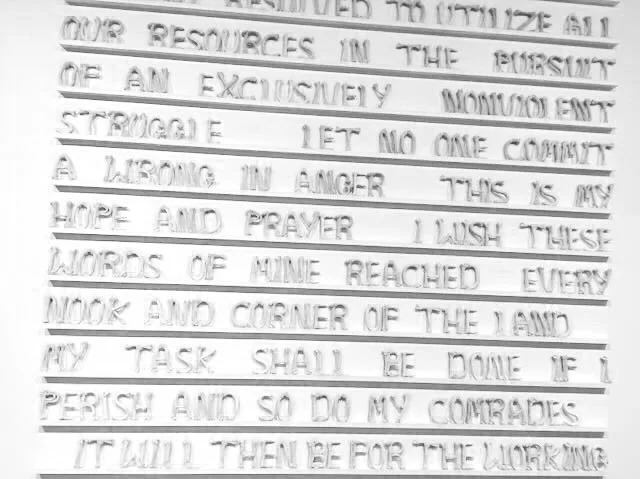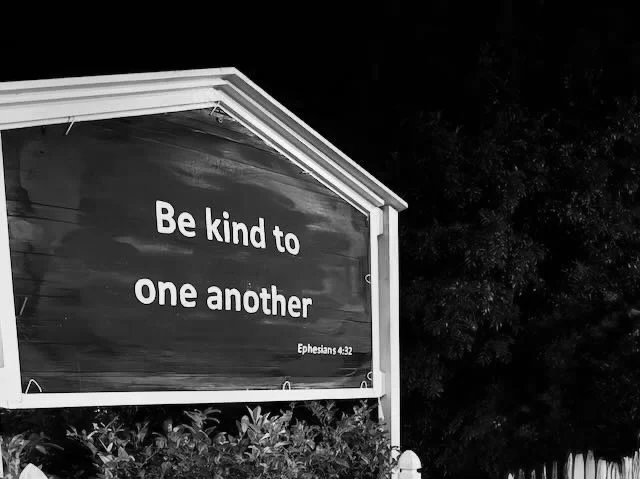The Coastline Paradox.
Australia’s coastline is somewhere between 25,000 km in length and 60,000 km.
The distance depends on the method used to measure it.
The more precise the measuring device, the more accurately you can capture the bays and inlets and coastal indentations.
The degree of precision needed depends on whether you’re a mariner or a geography teacher.
There will always be one who has the motivation, patience, and time to make finer measurements than yours.
Remember that next time someone critiques your words or your work.
The Nerve.
The disproportionate power of a criticism or complaint to harm us compared to other forms of information is that they touch that raw nerve of self doubt that runs through every reasonable human being.
What if I’m wrong?
Tear Off the Label.
Don’t rely on someone else’s label to know what’s in the package.
What the label described as criticism - is often a gift.
Redundant.
A boss acts to reinforce their power.
A leader acts to make themselves redundant.
The Force of a Decision.
A leader is anyone who intentionally directs force towards another to propel them towards a goal.
Mostly that force is a decision.
Like Punching the Firefighter.
Some evils are so extreme and cunning and dangerous to our society that they must be met with a type and level of force that is unsettling to us.
We must equip people with skills and weapons and authorise them to deploy in the shadows where this lawless evil lurks.
Indeed, the evils are either hidden in plain sight from the naive, or so confronting that we shut our eyes and turn away …
… towards those small numbers of us who are willing to defend our laws and values and common good against the evil.
We glimpse what they are required to do in our name - and we recoil in horror.
In our privileged position distant from the fight - we point and shout at our few: ‘How dare you!’
We protest in the street and write letters to the editor and post rants to camera and run for parliament on policies promising to stop the few.
Like fighting the arsonist by punching the firefighter.
We Don’t Need a Boss.
We don’t need a boss to give us permission to address the workplace.
We don’t need a boss to acknowledge performance and achievement.
We don’t need a boss to correct and continuously improve.
We don’t need a boss to be ourselves.
Dangerous.
Completely but plausibly wrong.
That’s the most dangerous person in an organisation.
Especially if they’re the boss.
Small People.
Small people try to get time with medium people who try to get time with bigger people.
Small people want access to medium people to use them to get access to bigger people.
Or at least so the small people can say ‘I was with so-and-so..’.
Of course, small people would be better off striving to be bigger people.
Not in Front of Grandma.
Duplicitous people work twice as hard.
They must maintain their authentic self, and the image they present to the world.
(We all do this, to varying degrees, remembering our parents’ exhorting us to be mindful of ‘time and a place’. ‘Not in front of Grandma!))
Credit where it’s due to the duplicitous.
Most Stupidity.
Most stupidity - of word or deed - is best left responded to with a grunt or eye-roll at most - but otherwise ignored.
To do more is to draw attention to and breathe life into what would otherwise wither and die from neglect.
The problem is if the stupidity is repeated, ignored, repeated, ignored - then it will more likely gain more stupid followers.
Fools who seek the attention of the bored, idle, and media that comes from leaping about in the fringes and extremes.
Left unaddressed, eventually someone will form a ‘community’ or acronym or political party to advance the stupidity.
Personality.
The bad boss thinks they’re the boss because of their superior personality.
The bad boss thinks that bossing is about imposing their personality on others for their betterment.
The bad boss thinks that self-reflection is for others who haven’t developed a superior personality.
Consequences.
You should be able to explain the reasonably foreseeable consequences of your decisions before you make them.
Even the ‘unconscious’ decisions.
The ‘unconscious’ decisions are often the most damaging to you and others.
The ‘unconscious’ decisions are only ‘unconscious’ because you’ve never had to explain their consequences.
That unexplained temper or prejudice are because you’ve never had to explain it’s because you’re afraid.
A Series of Dishonesties.
One dishonesty leads to another and another and another.
Until there is a consequence that makes no sense and is disproportionate in its size and harm to what immediately preceded it.
Because it is made with the combined energy and momentum of a series of dishonesties.



















